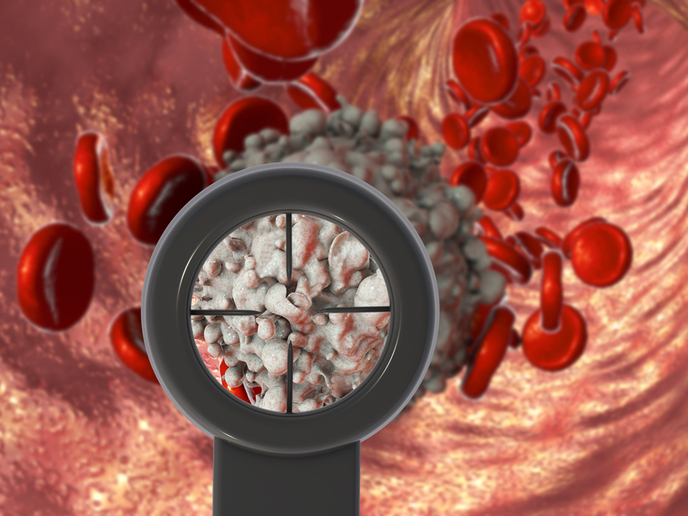New findings could help advance leukaemia treatment
A new discovery made by researchers from the University of Veterinary Medicine in Vienna could help in the treatment of AML. With support from the EU-funded ONCOMECHAML and ARCH projects, the research team identified a protein encoded by the protein coding gene MSI2 that could serve as a treatment target for new AML therapies. Their findings were published in the journal ‘Leukemia’. AML, the most frequently encountered blood cancer, is an aggressive cancer of a type of white blood cells called myeloid cells that are normally responsible for fighting bacterial infections and defending the body against parasites. Unfortunately, in spite of medical advances, AML leads to death within 5 years for over 80 % of patients diagnosed with the disease. This highlights the need for a better understanding of the disease that can lead to more effective treatment. About 10-15 % of AML sufferers have mutations in the CEBPA gene encoding the transcription factor CCAAT/enhancer-binding protein alpha (C/EBPα). The most frequent type of CEBPA mutations result in the expression of an N-terminally truncated variant of C/EBPα, called p30. While scientists are aware that C/EBPα p30 interacts with the epigenetic machinery, they don’t quite understand how p30-induced changes can cause leukaemia. The research team hypothesised that critical effector genes in CEBPA-mutated AML depend on p30-mediated dysregulation of the epigenome. To confirm their theory, they mapped p30-associated regulatory elements in a myeloid progenitor cell model for p30-driven AML. They then measured any associated p30-dependent changes in gene expression using RNA sequencing.
The importance of MSI2
“In an integrative analysis, we were able to determine p30-dependent regulatory elements,” stated study lead author Elizabeth Heyes of the University of Veterinary Medicine, which is the coordinator of ONCOMECHAML and a partner in ARCH. “The expression of 33 genes was directly controlled by the C / EBPα p30 oncoprotein. A functional study by CRISPR / Cas9 screening identified the RNA-binding protein MUSASHI-2 (MSI2) as a critical effector of p30. AML patients with CEBPA-Mutations expressed high levels of MSI2, and MSI2 was essential for the survival of murine and human AML cells CEBPA-Mutations required,” she went on to say in an article posted on the ‘World Today News’ website. “MSI2 knockout in p30-driven murine AML cells and in the CEBPA-mutated human AML cell line KO-52 caused proliferation arrest and terminal myeloid differentiation, and delayed leukemia onset in vivo,” the authors reported in the study. Through their work, the team members were able to produce a comprehensive data set of p30-dependent effects on epigenetic regulation and gene expression. They furthermore identified MSI2 as an effector of the C/EBPα p30 oncoprotein and consequently a possible new treatment target for CEBPA-mutated AML patients. ONCOMECHAML (Common Oncogenic Mechanisms in Multi-Partner Translocation Families in Acute Myeloid Leukemia) ended in May 2020. The 4.5-year ARCH (AGE-RELATED CHANGES IN HEMATOPOIESIS) project ends in November 2023. For more information, please see: ONCOMECHAML project ARCH project
Keywords
ONCOMECHAML, ARCH, acute myeloid leukaemia, AML, p30, CEBPA, MSI2, mutation, protein



